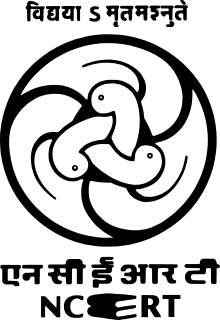What is the full form of NCERT?
NCERT – National Council of Educational Research and Training
The full form of NCERT is National Council of Educational Research and Training. It is an organization that was established on 1st September 1961 by the Government of India under the Societies’ Registration Act of 1860 as a literary, scientific and charitable society. NCERT is an autonomous organization.

The headquarters of NCERT is located in New Delhi, India. Dr Hrushikesh Senapaty has been serving as the director of the council since September 2015.
The History
Before NCERT was established, there were 7 government institutions built around education. These institutions included Central Institute of Education, the Central Bureau of Textbook Research, the Central Bureau of Educational and Vocational Guidance, the Directorate of Extension Programmes for Secondary Education, the National Institute of Basic Education, the National Fundamental Education Centre, and the National Institute of Audio-Visual Education.
All of these institutions were merged together into NCERT.
The Main Objectives of NCERT
NCERT has the following primary goals that drive all its actions and decisions:
- To promote and conduct educational research, experimentation of innovative ideas and practice.
- To develop National Curriculum Framework, syllabi, and textbooks; teaching-learning materials and kits; training models and strategies; audio, video, and ICT materials.
- Training of Pre-service and in-service teacher education and national and state level functionaries.
- To collaborate with State, national and international organizations.
To accomplish these objectives NCERT conducts major activities which include programs that are organised in rural and backward areas to reach out to underprivileged people in these areas.
Furthermore, NCERT is a major force in driving educational innovation in India, going as far as offering training facilities, workshops, etc for educators all over the country.
NCERT Textbooks and why they are so important
While there are many good textbook publishers in India none are as important as NCERT when it comes to school textbooks. NCERT textbooks are officially prescribed by CBSE , the most popular education board in India, for classes 1 to 12 with very few minor exceptions.
Along with CBSE, more than 19 education boards in India have adopted NCERT textbooks. In fact, even students from other boards like ICSE or ISC study using NCERT books because most competitive exams in India are usually based on the contents of these textbooks.
The Problem with NCERT Textbooks
In spite of being the most popular textbooks in India, a good number of people have voiced their concerns regarding them. One of the most common complaints levied against these textbooks is that they cover the general overarching and main points of a large number of topics but rarely ever comprehensively explore these topics. This has led to a lot of CBSE students going out to buy other textbooks which often cost quite a lot.
But that is not all, NCERT textbooks have been accused of having political biases and allegations of historical revisionism with a Hindu nationalist agenda have also been raised against these textbooks multiple times over their decades of being in publication.
However, even after these problems NCERT books still remain the most widely used textbooks in school all across India.